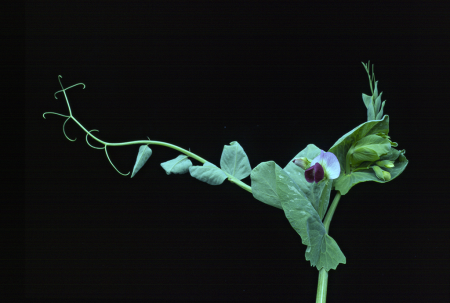- What more do you need to know about Phylloxera?
- A dangerous fixation? Not us. Slate does nitrogen.
- What do zombies eat when they run out of brains, and other responses to famine.
- India’s government does the needful and embraces biofortified staples. Wish them luck.
- “Let’s turn the clock back 4,000 years.” Good idea. Now we have the time to read Agricultural heritage across the millennia.
Peas that surpasseth understanding
Today is Carlin Sunday. That’s a Carlin Pea up there. There is a lot more one could say about carlins. Indeed, I’ve said some of it myself. For now, let them be a reminder of all the choices we’ve been denied as a result of EU legislation.
Nibbles: Phenomics, Genomes, Indian cucurbits, Argania, Food in history, Sourghum & drought, USDA genebanks, Queenly pear, CIMMYT genebank, Malawi cowpea, Nutrition strategy
- Phenomics is the new genomics.
- No, wait. Peanuts to get a genome. A rice relative’s got one already.
- All the Cucurbitaceae of India, in one handy checklist.
- The paradox of argan oil.
- Couple of things on the history of food. And one on the ethics of food.
- Big push for drought-resistant sorghum. Wait, I thought it was drought-resistant already.
- Ft Collins gets yet another media write-up.
- Telegraph says Queen gets rare pear. Letter writer to Times begs to differ on the whole rarity thing. It sounds like, damn thing being (mostly) behind a paywall.
- If you’re on Facebook, why not like this photo of the CIMMYT maize genebank?
- Canada to help Malawi diversify. Into cowpeas.
- Big report on big nutrition meeting. Big deal?
Nibbles: Hunger meet, Collecting info, Mapping species, Fair trade, Irish Famine, Rice changes, Food podcast, Cow genomics
- Hidden hunger experts come out into the open.
- Bioversity germplasm collecting reports go online.
- Where the threatened species are.
- Fair trade, shmare trade.
- The Lumper makes a comeback.
- Rice innovation in Bangladesh, abandonment in Nepal.
- Cherfas smears himself in bog butter for new podcast.
- Genomics and the livestock industry.
Cassava accessories in Oxford
The latest In Our Time sent me scurrying to the online database of Oxford’s Pitt Rivers Museum. Gotta love a museum whose collection you can search using the keyword “cassava accessory.” I also liked the historic photographs of the Luo, several of which include agricultural biodiversity.
